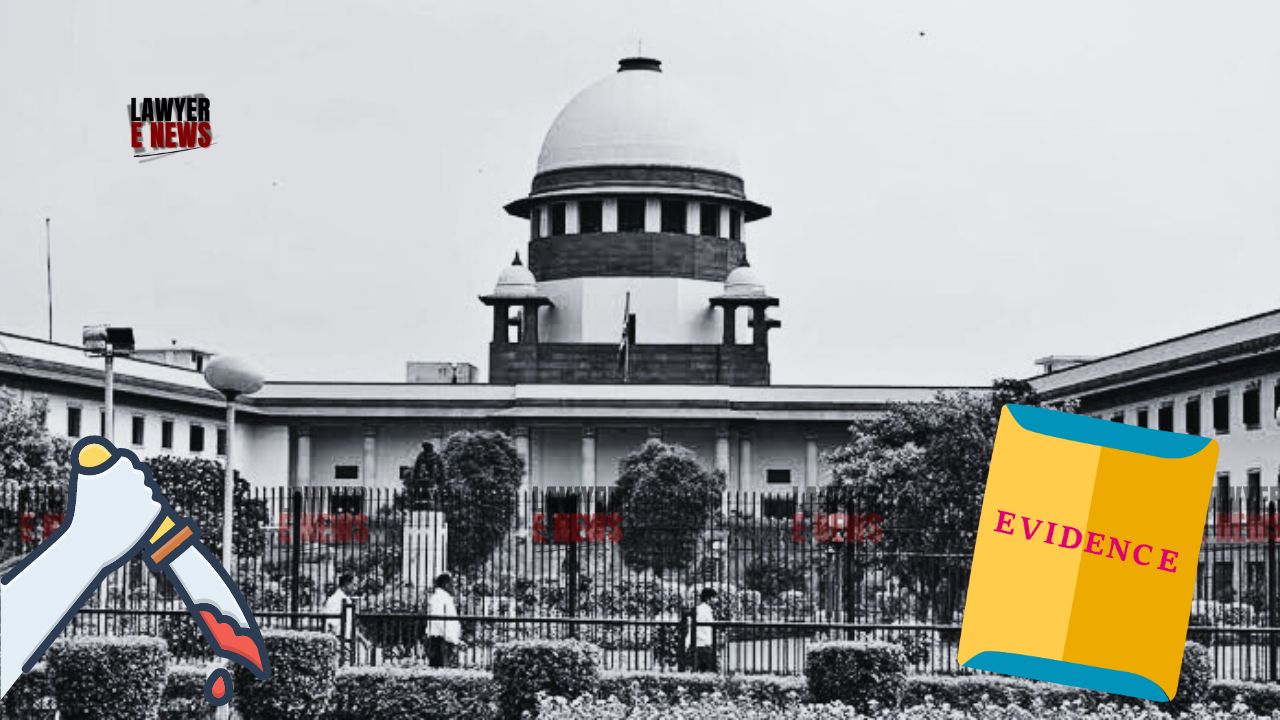-
by Admin
15 February 2026 2:36 AM



The Supreme Court overturns the life imprisonment sentence citing lack of corroborative evidence and reliance on weak extra-judicial confession. The Supreme Court has acquitted Ratnu Yadav, previously convicted for the murder of his stepmother, Smt. Hemwati Bai, under Section 302 of the Indian Penal Code (IPC). The judgment, delivered by a bench comprising Justices Abhay S. Oka and Rajesh Bindal, highlights the inadequacy of the evidence presented by the prosecution, particularly criticizing the reliance on an extra-judicial confession without substantial corroboration.
Ratnu Yadav was accused of murdering his stepmother, Hemwati Bai, on March 2, 2013. The prosecution alleged that Yadav had a land dispute with the deceased and that he assaulted her, dragged her by her hair to the village pond, and drowned her. The trial court and the High Court of Chhattisgarh convicted Yadav based on testimonies, including an extra-judicial confession and a "last seen" narrative provided by witnesses. Yadav was sentenced to life imprisonment by the Sessions Court, and the High Court upheld the conviction.
The Supreme Court underscored the inherent weaknesses of extra-judicial confessions. "An extra-judicial confession is, on the face of it, a weak evidence and the Court is reluctant, in the absence of a chain of cogent circumstances, to rely on it, for the purpose of recording a conviction," noted the bench, referencing prior judgments to reinforce the point.
The prosecution relied heavily on the testimony of PW-1, who was declared hostile but partially believed by the lower courts, and PW-5, who claimed to have seen the appellant with the deceased last. The Supreme Court found the testimonies inconsistent and insufficiently corroborated. The court particularly noted the absence of injury marks on the deceased's body, which contradicted the narrative of her being dragged over a considerable distance.
The postmortem report, conducted by PW-9 Dr. Pankaj Kishore, indicated drowning as the cause of death but did not conclusively establish whether it was homicidal or accidental. The Supreme Court pointed out that the lack of external injuries further weakened the prosecution's case, as no signs of struggle or forced submersion were evident.
The judgment emphasized the principle that extra-judicial confessions require strong corroboration from other independent evidence. The court noted that "where an extra-judicial confession is surrounded by suspicious circumstances, its credibility becomes doubtful and it loses its importance". In this case, the court found no such corroborative evidence, leading to the conclusion that the conviction was not sustainable.
Justice Oka remarked, "The normal rule of human conduct is that if a person wants to confess to the crime committed by him, he will do so before the person in whom he has implicit faith. It is not the case of the prosecution that the appellant had a close acquaintance with PW-1 for a certain length of time before the incident".
The Supreme Court's decision to acquit Ratnu Yadav underscores the judiciary's commitment to ensuring convictions are based on robust and credible evidence. By overturning the lower courts' judgments, the court highlighted the need for caution in relying on extra-judicial confessions and emphasized the importance of corroborative evidence in criminal cases. This judgment is expected to influence the handling of similar cases, reinforcing the standards for evidence required to secure a conviction.
Date of Decision: July 9, 2024
Ratnu Yadav vs. The State of Chhattisgarh
